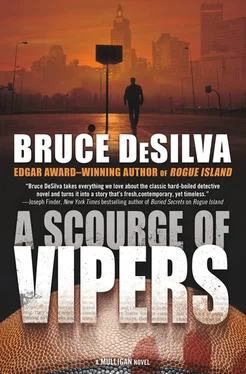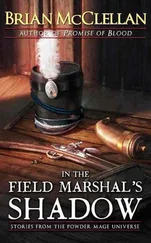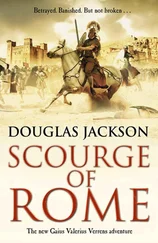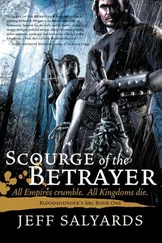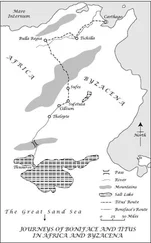At eleven A.M., the committee took a ten-minute break, and I followed the majority leader, Ray Tomasso, into the men’s room. I waited until he zipped up and washed his hands, then held my cell phone up to his face. He ignored it and brushed past me.
“How well do you know this guy?” I asked his Armani-draped back.
“Never seen him before.”
“Maybe so,” I said, “but how can you be sure without looking at the picture?”
He hesitated, then turned back and took the cell from my hand. I studied his face as he examined the photo, but it didn’t betray anything.
“Nope. Don’t recognize him. Who is he?”
“A guy who died with a briefcase full of cash in his lap and a piece of paper with your name on it in his pocket.”
“What are you implying, Mulligan?”
“I’m not implying anything. I’m just giving you the facts.”
He leaned against the sink and looked at the photo again.
“What was his name?”
“Lucan Alfano. Mean anything to you?”
“No. I know some Alfanos, but no Lucan. What do you know about him?”
“Just that he was a bad guy from out of town.”
“How bad?”
“Bad as it gets.”
“How did he die?”
“He was in that plane, the one that hit a house in Warwick last week,” I said. “It was in the paper.”
“I don’t read the paper.”
“You don’t?”
“Not anymore.”
“How do you keep up with the news?”
“I get Google alerts on the things that matter to me-legislative news, business stories, sports scores, anything with my name attached to it.”
He handed the phone back, and I put it in my pocket.
“So what’s this about, Mulligan?”
“I don’t know yet,” I said, “but I intend to find out.”
I braced Peter Slater, the Senate minority leader, and Daniel Crowley, the Speaker of the House, in their offices. They were no help either. They both claimed they’d never heard of anyone named Lucan Alfano. From their puzzled looks when they examined his photo, I was inclined to believe them-and for Crowley, that was a first.
I caught up with Lisa Pichardo, the House minority leader, as she was dashing down a statehouse hallway.
“Got no time for you now, Mulligan. The GOP caucus is meeting on the budget in five minutes.”
“So you’ve got five minutes,” I said.
“We have to do this now?”
“We do.”
“Then make it quick.”
“Take a look at this,” I said, and flashed the photo at her.
She glanced at it and blanched under her makeup.
“What am I looking at?” she asked.
“I think you know.”
“I’ve never seen this guy in my life.”
“Really? Because your poker face needs work.”
She scowled and turned away. I fell into step with her.
“That pile of cash you were expecting?” I said. “I hope you haven’t already spent it, because it’s sitting in a Warwick Police Department evidence locker.”
“I have no idea what you are talking about.”
I watched her scurry away down a corridor and duck into a meeting room. She’d never even asked the guy’s name. I figured it was because she already knew.
That left one last name from Alfano’s list-the only one I’d been shocked to see on it.
That afternoon, I made a round of calls to the NCAA, the NBA, the NHL, the NFL, and Major League Baseball. Their press officers, tipped off by an Associated Press rewrite of the Ocean State Rag story, had their talking points ready. They were nearly identical, full of the same sputtering outrage they had dished in response to Chris Christie’s plan. They’d been peddling the same hypocritical, self-serving bullshit for decades:
• Legalizing sports betting would irreparably harm the integrity of their games, creating a climate of suspicion about controversial plays, officiating calls, and players’ performances.
• It would expand the amount of money wagered on games, increasing the temptation to fix results.
• It would infringe on the leagues’ intellectual property by encouraging gambling operations to use proprietary information including statistics, injury reports, and team logos.
• Gambling on sports is an addiction that ruins lives, a scourge that should not be condoned by a benevolent state.
I wrote it up and filed it to the city desk. We were playing catch-up, but at least Chuckie-boy would have something to advance the story Mason had broken.
A half hour after I turned it in, I was summoned to Twisdale’s office.
“These guys are so full of shit,” he said.
“I agree.”
“Billions of dollars are already being wagered on sports,” he said. “Professional gamblers don’t need any more incentive to fix games.”
“Of course they don’t.”
“In fact, legalized gambling would more likely deter game-fixing than encourage it, because the amount being wagered would be public knowledge,” he said. “The Arizona State point-fixing scandal was exposed because somebody bet an obscene amount of money against them legally in Las Vegas, and alarm bells went off.”
“That’s right. You’re on a roll, Chuckie.”
He didn’t even stop to growl at me.
“Gambling is one of the reasons so many people follow sports,” he said. “The NCAA and the pro leagues know that, and they profit handsomely from it. That’s why they don’t object when sports writers cite point spreads. These jerk-offs blackmail cities into spending millions on stadiums by threatening to move their teams out of town, yet they object to state governments sharing the wealth. And by keeping sports betting illegal, they help the Mob stay in business. They and the bookmakers are practically co-conspirators, for godsakes.”
“You seem to know a lot about this,” I said.
“I’ve been reading up.” He snatched a printout of my story from his desktop and tossed it at me. “Your copy tells only one side of the story. Scare up some quotes from people who can call these assholes on their bullshit.”
“Already on it,” I said. “I should have more for you in an hour or so.”
“Make it a separate,” he said. “We’ll run the two pieces side by side under a ‘Pros and Cons’ headline.”
“Sounds good.”
“Before you go, there’s something else we need to discuss.”
“Oh?”
“What are you, about six-three?”
“Six-four, last time I checked,” I said.
“I hear you were a basketball star at Providence College, is that right?”
“A star? No way. Mostly I rode the bench.”
“Do you still play?”
“Once or twice a week. Pickup games at PC’s Begley Arena or the outdoor courts at Hope High School.”
“Good. I’ve got an idea I think you’re going to like.”
“I’m listening.”
“I want you to try out for the Vipers and write a series of first-person human interest stories about the experience.”
“Oh, hell no.”
“Why not?”
“Because I’m forty-four years old, Chuckie.”
“Oh, come on now. It’s not like I’m asking you to make the team. You just have to show up.”
“Why don’t you do it?” I said. “You’re nearly my height, and you’re twelve years younger.”
“Because I’ve got a newspaper to run. Besides, basketball was never my sport. I played middle linebacker at Valdosta State.”
“There are easier ways to get rid of me, Chuckie. You don’t have to try to get me killed.”
“This is an order, Mulligan. You already refused one assignment last week. It would not be in your best interest to pull that again.”
* * *
“He wants you to do what ?” Attila the Nun asked.
Читать дальше
